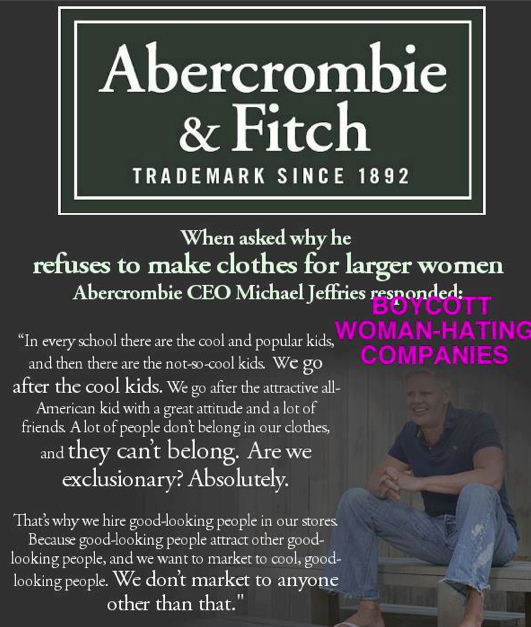America keeps endorsing the global view of a shallow society filled with image-craving bodies with no mental capacity.

Kristen Lamb speakes out about the latest shallow marketing message from Abercrombie & Fitch here: The Real Problem with Abercrombie & Fitch—How Jeffries’ Message Hurts Us ALL.
A&F should be horrified to learn that millions of teenagers and young adults will buy into their message that beautiful = thin and thin = cool. How do I know this? Because these same young people will binge and purge, starve themselves, exercise endlessly, and swallow laxatives only to look in the mirror and see a FAT person staring back. In reality, it will be a skeleton with skin, but they’re perception has been warped by the false messages around them.
To be fair, it isn’t just A&F. Hollywood, magazines, fashion gurus and photoshopped multi-media publications all tout the body image ideal that makes size 10 synonymous with obese.
I’m disgusted by this continuing trend. Yet, I’m still proud to be an American. Why? I believe in the ideals we were founded on.
No, those beliefs had nothing to do with image. They had everything to do with freedom from oppression. In America, the media has the freedom to promote unhealthy concepts. Likewise, we citizens have the freedom to speak out against their harmful drivel.
Do it. Today, hug your kids and let them know you love them (even if they *gasp* wear something other than a non-size 00). Then take a stand on this issue. Let the marketers know that the demographic that balks at their skin-deep ideals is much larger than the one A&F hopes to find.

I can’t believe what the A and F policy is. My youngest daughter BC wears their clothes. My eldest daughter suffers with anorexia. My family will actively boycott the brand, thanks for posting this. Tomagcro
I’m sorry about your daughter. It’s amazing the power these retailers have over young people’s self-image. I wish there were a more definitive way to stand against them.
Thanks for reading and especially for commenting.